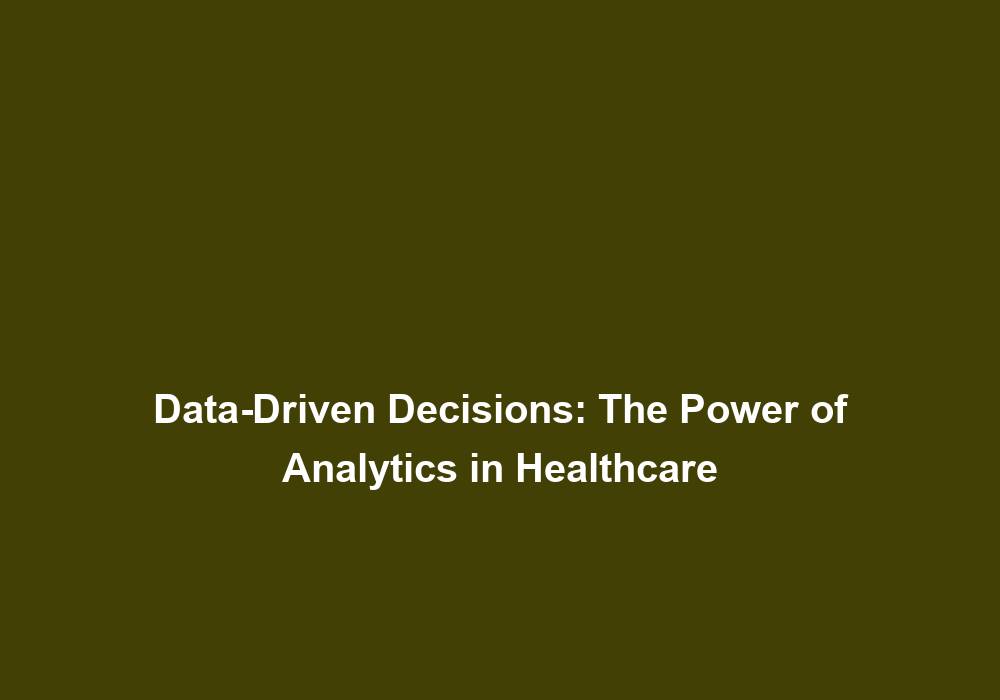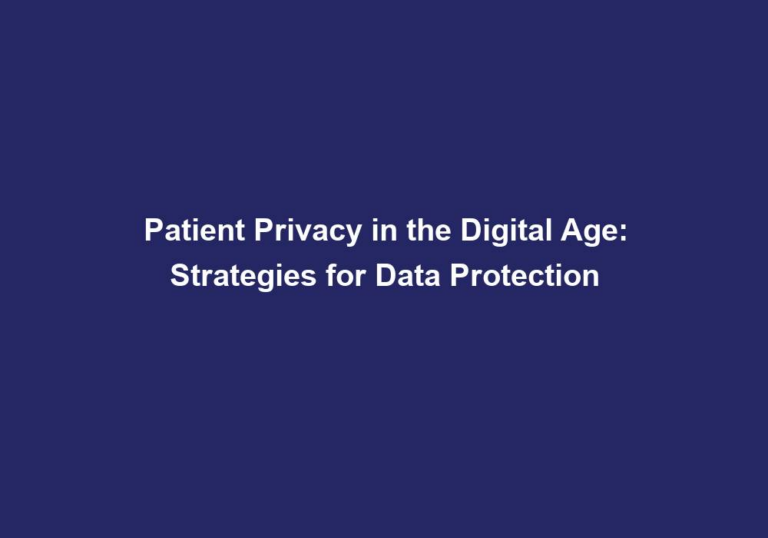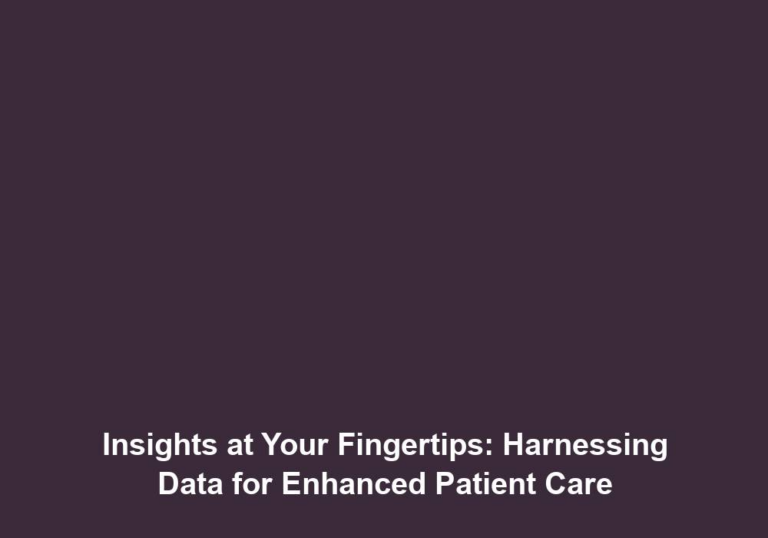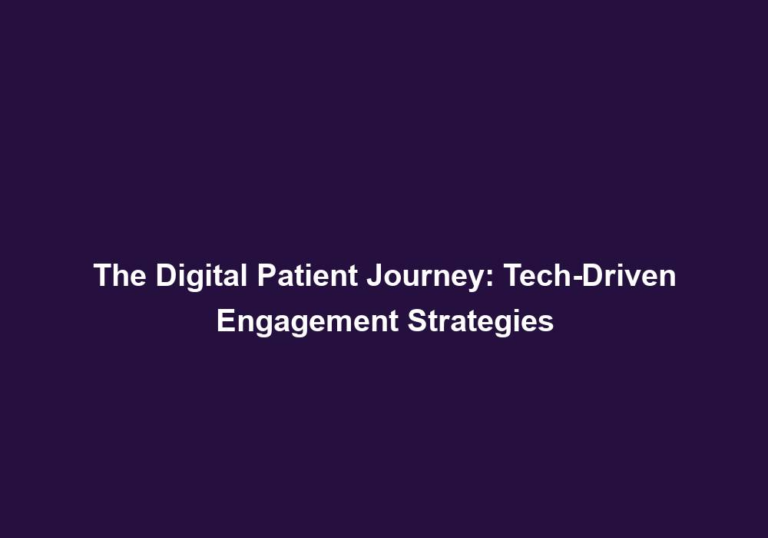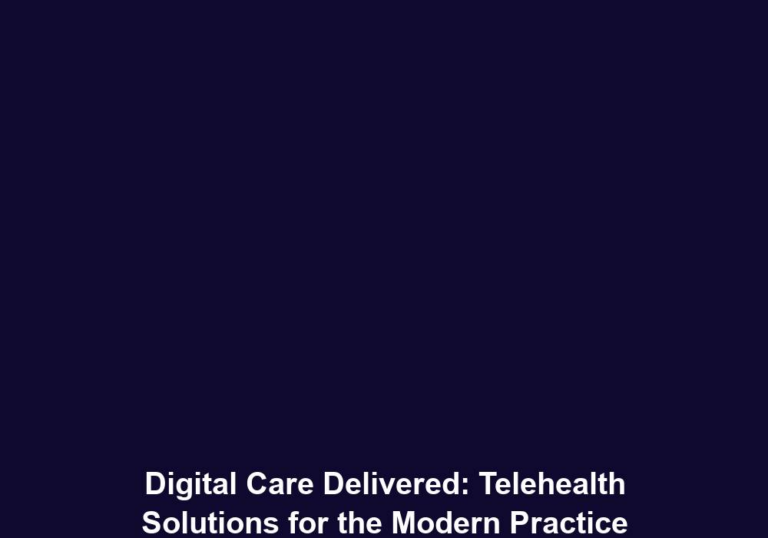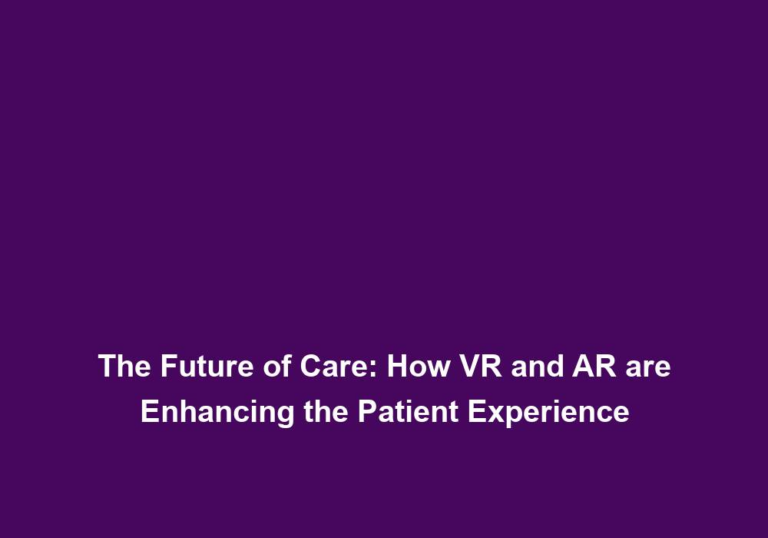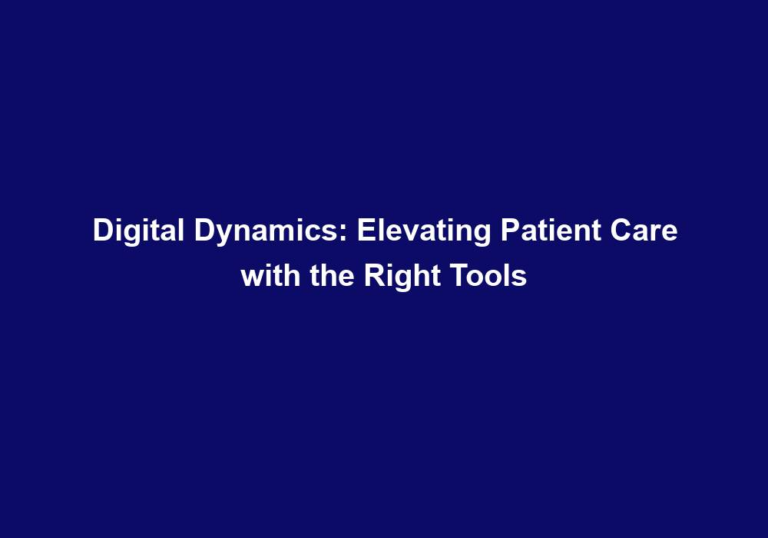Data-Driven Decisions: The Power of Analytics in Healthcare
In today’s rapidly evolving healthcare landscape, data-driven decisions have become increasingly vital for hospitals, physicians, and other healthcare providers. The utilization of analytics in healthcare has transformed the way organizations operate and deliver care. Through harnessing the power of data, healthcare providers can enhance patient outcomes, improve operational efficiency, and optimize resource allocation. This article explores the significant role of analytics in healthcare and how it enables data-driven decision-making.
The Need for Data-Driven Decisions in Healthcare
Healthcare organizations generate an enormous amount of data through various channels such as electronic health records (EHRs), medical imaging, clinical trials, wearables, and patient-generated data. However, the true value of this data lies in the insights it can provide when analyzed effectively. By leveraging analytics tools and techniques, healthcare providers can unlock the potential of their data and make informed decisions.
Improving Patient Outcomes
Analytics plays a crucial role in enhancing patient outcomes by enabling healthcare providers to identify patterns, trends, and potential risks. By analyzing large datasets, providers can identify early warning signs, predict disease progression, and personalize treatment plans. For example, predictive analytics can help identify patients at risk of readmission, allowing healthcare providers to intervene proactively and provide targeted interventions, ultimately reducing readmission rates.
Furthermore, analytics can assist in identifying high-risk patients who may need additional support or resources. By analyzing data from EHRs, wearables, and patient-generated data, healthcare providers can identify patients with chronic conditions or those at risk of developing complications. This allows providers to tailor their care plans, provide appropriate interventions, and ensure better health outcomes for these individuals.
In addition to individual patient care, analytics can also contribute to population health management. By analyzing data from diverse sources such as demographics, clinical data, and social determinants of health, healthcare providers can identify at-risk populations and develop targeted interventions. For instance, analytics can help identify communities with high rates of preventable diseases, enabling providers to implement preventive measures, improve health education, and reduce healthcare disparities.
Enhancing Operational Efficiency
Efficient resource allocation is a significant challenge in the healthcare industry. Analytics helps optimize resource allocation by identifying areas of inefficiency and waste. By analyzing patient flow, capacity utilization, and supply chain data, healthcare organizations can streamline operations, reduce wait times, and improve overall efficiency.
For instance, analytics can identify bottlenecks in emergency departments, enabling healthcare organizations to allocate staff and resources more effectively. By understanding patient flow and demand patterns, organizations can make data-driven decisions to ensure appropriate staffing levels and resource allocation. This not only improves patient care and satisfaction but also reduces unnecessary costs and improves operational efficiency.
Moreover, analytics can contribute to inventory management and supply chain optimization. By analyzing data on supply chain processes, healthcare organizations can identify areas where inventory is overstocked or understocked, leading to wastage or delays in care. With the help of analytics, organizations can forecast demand, optimize inventory levels, and ensure the availability of essential supplies and medications when needed.
Optimizing Revenue Cycle Management
Data-driven decisions are instrumental in optimizing revenue cycle management. By analyzing billing and claims data, healthcare providers can identify areas of improvement, reduce claim denials, and maximize reimbursements. Analytics can help identify billing errors, coding discrepancies, and other revenue leakage points, enabling timely intervention and ensuring accurate reimbursement.
Furthermore, analytics can assist in detecting fraudulent activities and reducing financial risks. By analyzing patterns and anomalies in billing and claims data, healthcare organizations can identify potential cases of fraud or abuse. This helps prevent financial losses, ensures fair billing practices, and promotes transparency and accountability in healthcare systems.
Key Applications of Analytics in Healthcare
The applications of analytics in healthcare are vast and varied. Here are a few key areas where analytics is transforming the industry:
Predictive Analytics
Predictive analytics utilizes historical data and advanced algorithms to forecast future outcomes. In healthcare, predictive analytics can assist in predicting disease progression, identifying high-risk patients, and improving preventive care strategies. By leveraging predictive analytics, healthcare providers can intervene earlier, improve patient outcomes, and reduce healthcare costs.
Predictive analytics can also be beneficial in public health initiatives. By analyzing data from various sources, such as public health records, environmental data, and social media, healthcare organizations can identify disease outbreaks, monitor population health trends, and plan targeted interventions. This helps in controlling the spread of infectious diseases, improving public health preparedness, and allocating resources efficiently.
Population Health Management
Population health management focuses on improving the health outcomes of a specific group of individuals. Analytics allows healthcare providers to identify at-risk populations, understand their needs, and develop targeted interventions. By analyzing demographic, clinical, and social determinants of health data, providers can implement preventive measures, improve health education, and reduce healthcare disparities.
Analytics can also play a crucial role in identifying social determinants of health that impact population health outcomes. By analyzing data related to socioeconomic factors, education levels, housing conditions, and access to healthcare, healthcare organizations can address the underlying causes of health disparities and develop interventions to improve health equity.
Clinical Decision Support
Clinical decision support systems utilize data analytics to provide healthcare providers with real-time, evidence-based recommendations for diagnosis, treatment, and care management. By integrating patient data, medical literature, and best practices, clinical decision support systems empower healthcare providers to make informed decisions, reduce medical errors, and improve patient safety.
In addition to supporting individual patient care, clinical decision support systems can also contribute to clinical research and quality improvement initiatives. By analyzing data from electronic health records and clinical trials, healthcare organizations can identify opportunities for improving clinical guidelines, treatment protocols, and patient outcomes. This helps in advancing evidence-based medicine, enhancing clinical practice, and promoting continuous learning and improvement.
Research and Development
Analytics plays a crucial role in driving research and development in the healthcare sector. By analyzing vast amounts of clinical and genomic data, researchers can identify novel drug targets, understand disease mechanisms, and develop innovative treatment approaches. Data-driven research accelerates the discovery process, leading to improved therapies and better patient outcomes.
Moreover, analytics can facilitate precision medicine and personalized healthcare. By analyzing genetic data, clinical data, and treatment outcomes, healthcare organizations can identify genetic variations that influence response to specific treatments. This enables the development of targeted therapies and personalized treatment plans, resulting in better patient outcomes and improved quality of care.
Overcoming Challenges in Implementing Analytics in Healthcare
While the potential benefits of analytics in healthcare are undeniable, the implementation of data-driven decision-making does come with its challenges. Here are a few hurdles healthcare organizations may encounter:
Data Privacy and Security
Healthcare data is highly sensitive and subject to strict privacy regulations. Protecting patient privacy and ensuring data security is paramount when implementing analytics solutions. Healthcare organizations must adhere to industry standards and implement robust security measures to safeguard patient information.
To address data privacy and security concerns, healthcare organizations should establish strict access controls, encrypt sensitive data, and regularly audit data handling processes. Additionally, organizations must ensure compliance with regulations such as the Health Insurance Portability and Accountability Act (HIPAA) to protect patient privacy and mitigate the risk of data breaches.
Data Integration and Interoperability
Healthcare data is often fragmented across various systems and platforms. Integrating data from multiple sources and ensuring interoperability can be a complex process. Healthcare organizations must invest in data integration tools, interoperable systems, and standardized data formats to unlock the full potential of their data.
Interoperability initiatives, such as the adoption of standardized data exchange formats (e.g., HL7, FHIR), can facilitate seamless data sharing between different healthcare systems. Additionally, the implementation of data warehouses and data lakes can centralize and integrate data from various sources, enabling comprehensive analysis and insights.
Workforce Training and Cultural Change
Implementing analytics in healthcare requires a skilled workforce capable of handling and interpreting data effectively. Healthcare organizations must invest in training programs to upskill their staff and foster a data-driven culture. Additionally, leadership support and change management strategies are vital to drive the adoption of analytics and ensure its successful implementation.
To address the workforce training challenge, healthcare organizations should provide comprehensive training programs on data analysis, data management, and data visualization tools. Additionally, organizations should encourage a culture of continuous learning and data-driven decision-making. Strong leadership and effective change management strategies can help overcome resistance to change and promote the adoption of analytics across the organization.
Conclusion
In conclusion, the power of analytics in healthcare is transforming the industry by enabling data-driven decision-making. From improving patient outcomes to enhancing operational efficiency and optimizing revenue cycle management, analytics has become an indispensable tool for healthcare providers. By leveraging predictive analytics, population health management, clinical decision support, and research and development, healthcare organizations can unlock valuable insights from their data. However, to fully realize the potential of analytics, healthcare organizations must address challenges related to data privacy, integration, and workforce training. By doing so, they can harness the power of analytics to revolutionize healthcare delivery and improve patient care.

